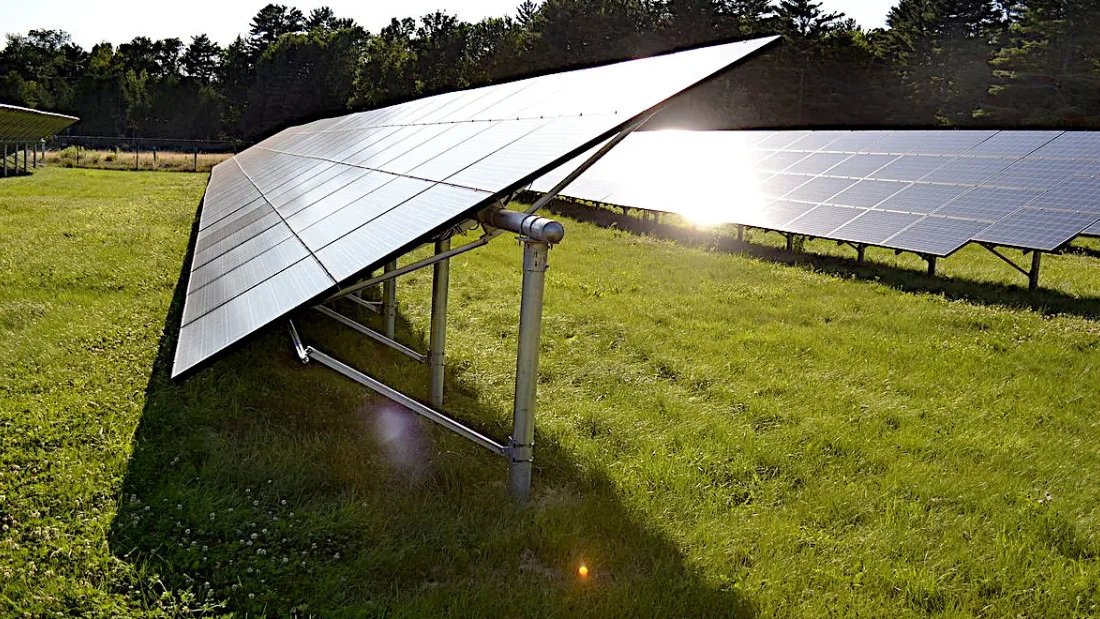
SOLAR: A New Hampshire legislative proposal would streamline the interconnection process for solar projects, which right now varies depending on the utility for projects larger than 100 kW. (Energy News Network)
UTILITIES:
ELECTRIC VEHICLES:
POLICY: Maryland’s legislature quickly approaches its deadline to advance legislation to the next chamber, but several energy bills — including one to restrict what homeowner associations can do about a home’s solar or electric vehicle installation plans — have already done so. (RTO Insider, subscription)
STORMS:
TRANSIT:
OFFSHORE WIND: Northeast fishers have about three months to apply for compensation if their business was impacted by Vineyard Wind construction, with much of the money earmarked for Massachusetts workers. (CAI)
EDUCATION: A high school-aged youth coalition pushes New Hampshire legislators to incorporate climate and environmental education in school curricula. (In-Depth NH)
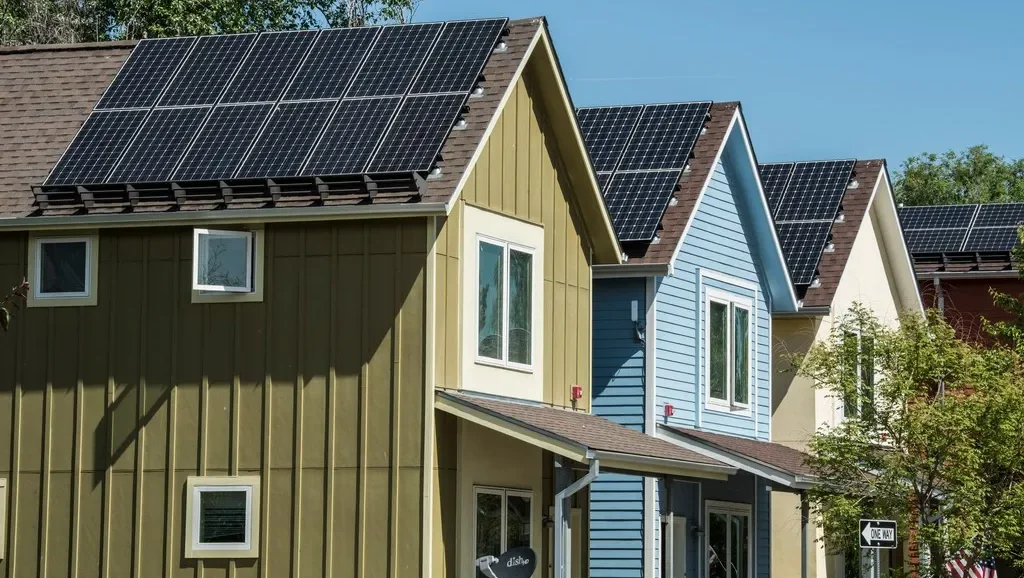
SOLAR: California regulators side with utilities and propose rejecting a community solar-friendly tariff policy pushed by advocates, lawmakers and pro-solar groups, potentially killing efforts to revamp the state’s community solar market. (Canary Media)
ALSO:
UTILITIES: An Oregon jury orders PacifiCorp to pay more than $42 million to victims of the 2020 Labor Day fires blamed on the utility’s equipment. (Associated Press)
HYDROGEN: Xcel Energy pauses a plan to blend hydrogen with natural gas in its distribution system following opposition from residents and advocates. (CPR)
MINING:
DIVESTMENT: Oregon lawmakers pass a bill that would divest the state’s public employee retirement fund from nearly $1 billion in coal-related investments. (Oregon Capital Chronicle)
COAL: A company plans to demolish Alaska’s only coal loading facility, likely permanently ending the state’s coal export industry. (KTOO)
POLITICS: Wyoming’s senate passes language that would strip an agency of funding that has gone toward Gov. Mark Gordon’s “all of the above” energy strategy. (Wyoming Public Radio)
CLIMATE: The Biden administration awards $38 million to Oregon for resilience measures that can better protect residents from climate change-exacerbated wildfires. (KOIN)
GEOTHERMAL: Hawaii launches a statewide search for potential geothermal energy sources using federal COVID relief funds. (KHON)
GRID:
NUCLEAR: California advocates urge federal regulators to order Diablo Canyon nuclear plant to close immediately due to the “unacceptable risk” of a seismically induced accident. (Tribune)
HYDROPOWER: Data show Northwest hydroelectricity facilities generated less power in 2023 than in the last 20 years due to low winter snow levels. (KUOW)
TRANSPORTATION:
COMMENTARY: A Colorado advocate urges state lawmakers to fashion policies aimed at accelerating residential building electrification. (Colorado Newsline)

GRID: The Midcontinent Independent System Operator proposes a second round of transmission upgrades across the Midwest costing as much as $23 billion, but advocates question whether the plan sufficiently anticipates future clean energy needs. (Energy News Network)
ALSO: A North Dakota utility says a massive new cryptocurrency data center is straining a power line, which has cost it $18 million in demand charges, much of which gets passed on to customers. (Bismarck Tribune)
CARBON CAPTURE:
NATURAL GAS:
POLLUTION: Multiple Midwest states join a lawsuit challenging a new EPA rule tightening standards for particulate pollution. (Associated Press)
SOLAR:
BIOENERGY:
TRANSPORTATION: Rapid City, South Dakota’s city council passes a resolution in support of a proposed passenger rail expansion that would connect the city to Sioux Falls and Denver. (Rapid City Journal)
COMMENTARY: A Kansas advocate says the state’s lack of a comprehensive energy plan has made this year’s legislative debate feel “a lot like a dysfunctional road trip.” (Kansas Reflector)

NUCLEAR: Connecticut legislators mull studying the possibility of adding new nuclear capacity at the Millstone Station plant. (New Haven Register)
BUILDINGS: Providence’s city council passes a new ordinance requiring municipal buildings reach carbon neutrality by 2040. (Providence Journal)
SOLAR:
CLEAN POWER: New York City finds it feasible to develop solar and battery storage at Rikers Island, an infamous prison slated for closure, as well as install offshore wind power transmission equipment. (The City)
POLICY: A hearing on New York’s new emissions reduction scoping plan sees supporters and detractors argue for and against accelerated climate action. (Auburn Citizen)
TRANSIT: Some Maryland lawmakers want to block the possibility of funding a high-speed train between New York City and Washington, D.C., although the legislation is stalled in committee. (Capital News Service)
FOSSIL FUELS:
GRID: Connecticut legislators hear testimony on a proposal to study the impact of large data centers on the state’s power grid, but supporters of such facilities say studies will just delay development. (CT Mirror)
GEOTHERMAL:
UTILITIES: Iberdrola, a Spanish energy major with a majority stake in Avangrid, wants to buy out the remaining shares in the Connecticut-based utility. (Hartford Business Journal)
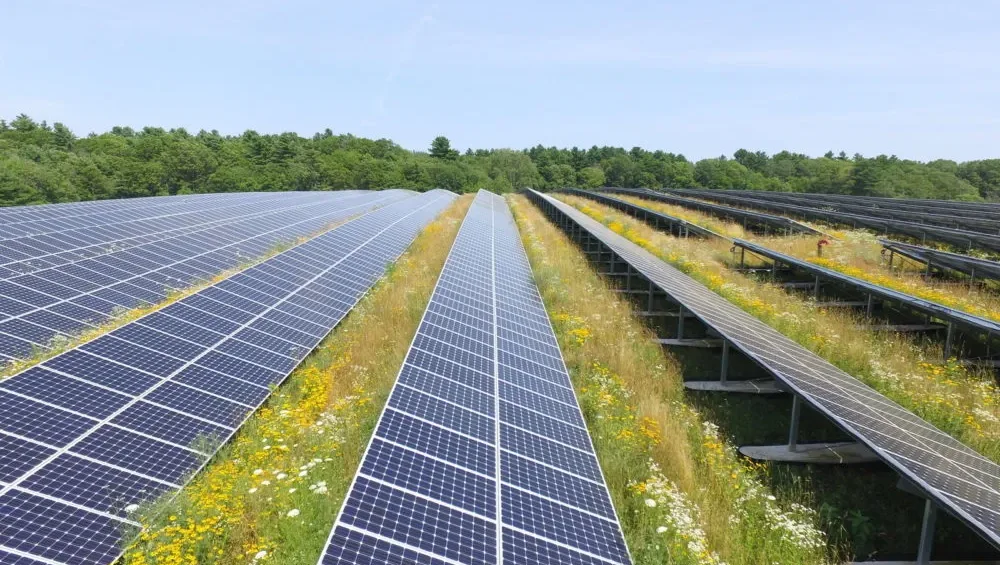
CLIMATE: President Biden highlights his climate policies in his State of the Union address, tying Inflation Reduction Act incentives to a wave of clean energy manufacturing projects and jobs. (E&E News)
ALSO: Two new analyses conclude this winter’s record-breaking warmth was driven by climate change, which combined with an El Niño weather pattern made the season unrecognizable in parts of the world. (New York Times)
OIL & GAS:
GRID: Advocates say grid-enhancing technologies can help squeeze more capacity out of existing U.S. transmission lines and reduce bottlenecks as more clean energy comes online. (States Newsroom)
ELECTRIC VEHICLES:
UTILITIES: Xcel Energy acknowledges its power poles likely sparked the largest wildfire in Texas history, though denies it was negligent in maintaining its facilities. (Texas Tribune)
SOLAR: New York City finds it feasible to develop solar and battery storage at Rikers Island, an infamous prison slated for closure, as well as install offshore wind power transmission equipment. (The City)
STORAGE: Advocates say Hawaiian Electric’s plan to slash residential battery program incentives could imperil the state’s energy transition and lead to more power outages. (Grist)
TRANSPORTATION: The founder of an electric bike-sharing company is determined to make the operation successful in Youngstown, Ohio, by scaling appropriately and focusing on community needs. (Energy News Network)
BIOFUELS: Advocates say a California program allowing dairies to sell carbon credits for producing biofuels from manure incentivizes factory farming and its environmental impacts. (Sierra)
COMMENTARY: A California columnist considers the pros and cons of public power agencies after Warren Buffett questions the financial viability of investor-owned utilities in the West. (Los Angeles Times)

Climate and clean energy advocates weighing in on CenterPoint Energy’s ideas to decarbonize its natural gas business in Minnesota applaud the effort but say it falls short of what’s needed to meet the moment.
The state’s largest gas utility submitted an “innovation plan” last summer to the Minnesota Public Utilities Commission, which is taking public comments on the plan through March 15. Over the course of hundreds of pages, the utility proposes 18 pilot projects — from tree planting and geothermal to carbon capture and hydrogen blending.
Altogether, the utility is asking to spend more than $105 million on 18 pilot projects that it estimates will reduce the equivalent of around 330,000 metric tons of carbon emissions over the five year plan, which would represent about a 4% reduction, according to calculations by clean energy organizations.
The plan “is going to move us, but it’s not going to move as fast enough,” said Melissa Partin, climate policy analyst with the Minnesota Center for Environmental Advocacy, one of several groups that have submitted comments on the plan.
The docket (M-23/215) stems from the Natural Gas Innovation Act, a 2021 state law that, among other things, authorizes gas utilities to collect money from ratepayers for projects aimed at reducing greenhouse gas emissions. Xcel Energy submitted a similar plan to state regulators late last year for its natural gas utility.
Gas utilities are expected to make up a growing share of the state’s climate pollution as the state’s electric utilities transition to 100% clean power by 2040. Two out of every three households heats their home with natural gas, and many industries rely on the fuel to operate medium and heavy machinery — a potentially daunting challenge as the state seeks net-zero climate emissions by 2050.
The Minnesota Center for Environmental Advocacy and other advocates have asked the Public Utilities Commission to supplement the pilot project spending with emission-reduction targets for the utilities.
While many of CenterPoint’s ideas look promising and some could eventually scale up to make a bigger impact, Partin said the Natural Gas Innovation Act will not alone drive the state across the finish line for its climate goals.
Other strategies will be needed, such as updating commercial and residential building codes, improving energy efficiency standards for appliances, and considering a ban on allowing any natural gas in new buildings, which, Partin said, “will be difficult in Minnesota’s current political climate.”
Utilities are somewhat hamstrung by the act’s requirement that half the budget for the initial plans must go to alternative fuels, which “stacks the deck” in favor of renewable natural gas and hydrogen, Partin said.
CenterPoint is already blending hydrogen into its system from a downtown Minneapolis facility, and so proposing additional such projects does not seem to fit the definition of “innovation,” Partin said. Meanwhile, a recent study by the Institute for Energy and Environmental Research found little to no climate benefit from blending hydrogen in existing gas supply lines, in part because hydrogen is less energy dense and more prone to leaking.
Joe Dammel, managing director of buildings for Fresh Energy, said CenterPoint’s plan “is definitely not a silver bullet; it’s not going to get us where we need to get.”
Energy News Network is an independent journalism service of Fresh Energy.
While praising the utility for its yearlong stakeholder process and for proposing new resources and changes to its business model, the plan shows that CenterPoint will not contribute “their fair share of the emissions reductions needed based on this,” Dammel said.
CenterPoint’s pilots for weatherization and retrofitting homes look promising, he said, but ideas for purchasing carbon offsets, selling gas-powered heat pumps and injecting hydrogen into the existing gas system have little chance of success.
CenterPoint’s proposal to create green hydrogen, produced from renewable energy, and blending it into the gas distribution system is not “scalable” and has limitations. Commercial gas heat pumps “are not a very viable technology,” Dammel said. Instead, the utility should focus on applying hydrogen technology to decarbonize industrial end users.
Dammel added that to reach the state’s 2050 carbon neutrality goal CenterPoint’s first plan would have to increase its emissions reduction six-fold, from 4% to 27%.
Audrey Partridge, policy director for the Center for Energy and Environment, said the pilot programs will lead to better data and a greater understanding of the potential energy sources and their carbon emissions.
“I’ve heard people describe it as throwing spaghetti at the wall,” Partridge said. “But we need to come up with all the possible solutions and pursue them on a small scale to see which ones are going to stick. These aren’t necessarily mature ideas, as you would see in other areas of energy. They’re very, very new.”
The pilots that could yield important advances include using heat pumps for large loads and electrification of low and medium heat processes in the industrial sector, she said. Residential deep energy retrofits and geothermal technologies will likely reduce natural gas consumption.
“We do hope that CenterPoint and Xcel get approval to move forward on these plans so that we can start to learn from them,” Partridge said.
The docket could begin a new path for CenterPoint, which only sells gas. The Minneapolis Deputy Commissioner of Sustainability, Healthy Homes and Environment, Patrick Hanlon, said CenterPoint’s plan allows the utility to provide “heat as a service,” a crucial distinction that gives room for innovations the city supports, including ground source networked geothermal systems, district energy and other approaches.
“Heat as a service allows CenterPoint to move away from natural gas and move towards some alternative, more climate-friendly sources of heat,” Hanlon said. The city also wants to ensure that residents are “not burdened” with the cost of the innovative pilots or switching to a different level of service, he said.
The attorney general’s office, which represents ratepayers, suggested the cost for some pilots outweighed the carbon benefits while suggesting the commission modify or deny sections of the plan.
“Portions of CenterPoint’s plan are not yet ready for primetime: several of the proposals lack necessary partners, and many lack sufficient detail to establish their prudence,” the office wrote. “Other proposed projects are unlikely to achieve the greenhouse gas savings CenterPoint suggests and unlikely to justify the astronomical cost to ratepayers.”
The attorney general and clean energy groups also raised concerns about CenterPoint’s request to exceed pilot budgets by as much as 25% without statutory approval. Clean energy groups also seek modifications to CenterPoint’s plan to recover the cost of projects.
The Public Utilities Commission is expected to hold hearings later this year before deciding on the plans for both utilities.

When conveyor belt manufacturer Wire Belt opened its new facility in Bedford, N.H., last fall, the company looked forward to saving money and fighting climate change with a 2,400-panel solar array installed on the roof.
Four months later, however, Wire Belt’s solar panels lie dormant as the company waits for its utility to hook the project up to the grid. It’s an example of the often long and unpredictable interconnection delays facing large solar projects in New Hampshire and nationwide.
Wire Belt president Jon Greer was among those who testified at a January hearing in support of state legislation that aims to streamline this connection process, a proposal that is receiving broad support from climate advocates and the business community, including companies like Wire Belt, whose monthly power bills approach $60,000.
Sen. Kevin Avard, chairman of the Senate energy and natural resources committee, who introduced the bill, said it’s time to fix the system.
“We just want to make sure that the people who took advantage of solar have the opportunity to utilize the good clean energy, hopefully at a lower price,” Avard said.
Currently, utilities determine their own process for approving interconnection requests for projects larger than 100 kilowatts. The bill calls for the New Hampshire Department of Energy to draft and assess rules that would create a uniform policy for all utilities to use, with the goal of making the process smoother and more predictable.
“Right now there are no guardrails, no timelines, there’s no real obligation to hurry,” said Sam Evans-Brown, executive director of the nonprofit Clean Energy New Hampshire. “This is where, if you’re a regulated monopoly, regulators are supposed to step in.”
Wire Belt is not the only business feeling discouraged. Russ Greenlaw, senior vice president of sales for the Associated Grocers of New England, explained at the hearing that the delays make it difficult for members to commit to spending money on solar developments when it is so unclear when they would be able to see benefits to their bottom line.
“There’s just a complete lack of clarity and predictability around the process,” said Heidi Kroll, director of government relations for New Hampshire law firm Gallagher, Callahan & Gartrell.
Interconnection issues are not limited to New Hampshire. Though each state has its own approach, the basics are the same: New renewable energy projects that want to hook up to the grid have to submit interconnection requests to the utility. The utility evaluates the project and its impact on the grid, then decides whether any upgrades are necessary to accommodate the new power source before approving it for connection.
Residential arrays and other small projects are often approved quickly: Eversource, which serves 71% of New Hampshire’s households, expects to receive as many as 5,000 interconnection requests this year and to approve 95% of them within days.
However, in New Hampshire and many other states, the surge in larger renewable energy developments has created logjams in this process as utilities try to figure out how much the grid can bear and how to accommodate additional power — how to balance the benefits of renewable energy supply with the strain the new generators put on the grid.
“Interconnection is one of the biggest barriers right now to getting clean energy done,” Evans-Brown said.
And most states do not yet have systems in place that are keeping up with these challenges. Freeing the Grid, a nonprofit initiative that grades states on their interconnection policies, found that only six states — none in New England — and the District of Columbia scored above a C. New Hampshire was among the 17 states earning a D.
Eversource, New Hampshire’s largest utility, has a queue of just under 100 projects needing further study. Unitil, which serves about 10% of the state’s customers, has four larger projects in the waiting line — three since the fall and one since late spring — representing the significant majority of the pending load.
New Hampshire has taken early steps to address its interconnection problem. In July 2022, the legislature asked the state to investigate and make recommendations. The resulting report, released in December 2023, concluded that there are indeed “considerable technical, operating, processing, and procedural challenges,” to adding growing amounts of renewable energy to the grid.
The report called for the creation of two working groups — one focused on technical and engineering problems and solutions, and another for administrative and process issues — to further assess the situation and provide solutions.
For many stakeholders, however, this proposed approach is not nearly robust enough, prompting a bipartisan group of legislators to back the current bill.
The original bill would have required the state to begin a rulemaking process within 45 days and adopt final rules by the end of 2024. This timeline, however, would not have been possible within the department’s rulemaking process, said Joshua Elliott, director of the energy department’s division of policy and programs. The legislation was then amended to call for “a proceeding to examine and assess draft rules to be adopted” rather than a final rulemaking.
“The bill as introduced was not implementable,” Elliott said. “As amended, the bill both gives the department the resources to accomplish this task and a timeline that is implementable.”
Some advocates, however, aren’t convinced that the amended bill has enough specificity and force to make the needed difference.
“It is not explicitly clear that a rulemaking is required, and it doesn’t give any deadline,” Evans-Brown said. “It was a valuable hearing — that’s a big step — but I am very skeptical that the [department] is taking this problem seriously.”
The Senate’s energy and natural resources committee voted unanimously in mid-February to recommend passage of the amended bill, and legislators are eager to see it passed and hopefully help ease a longstanding problem.
“What’s the pause, what’s the hiccup?” Avard said. “It’s nothing complicated.”
Editor’s note: The headline on this article was updated to clarify that interconnection delays are only affecting projects over 100 kW.
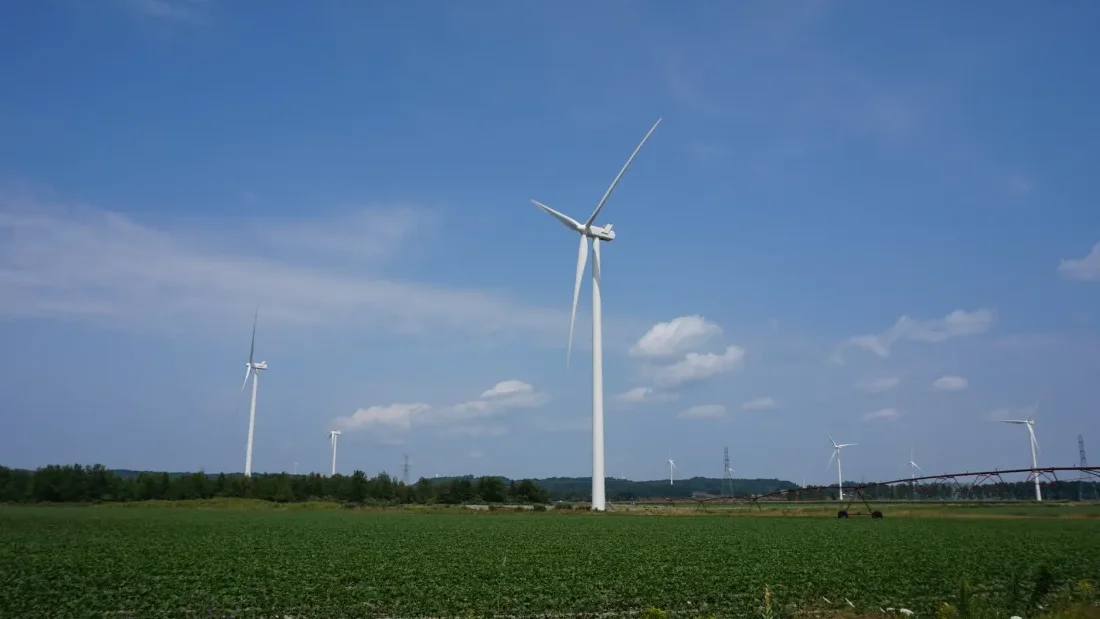
WIND: The Massachusetts Clean Energy Center purchases the 42-acre waterfront site of a former coal- and oil-fired power plant in Salem to build a second terminal for offshore wind development. (Boston Globe)
ALSO:
OIL & GAS:
NUCLEAR: Massachusetts’ attorney general files a civil lawsuit against the firm handling the Pilgrim nuclear plant decommissioning over air pollution concerns stemming from the site demolition. (CommonWealth Beacon)
HYDROPOWER: As Québec and the Northeast U.S. both look to take advantage of Canadian hydropower to hit renewable energy goals, Hydro-Québec looks to long-duration storage to fulfill its contracts. (RTO Insider, subscription)
SOLAR:
BUILDINGS: With last summer’s floods in mind, Vermont lawmakers consider a bill to require a state permit to build in river corridors, but the state’s governor says he’ll likely veto it, citing a shift in land use responsibility and a lack of resources to execute. (VT Digger)
UTILITIES:

OVERSIGHT: A new Virginia commission to provide state lawmakers more guidance on increasingly complicated utility and energy bills could give new life to stalled proposals to restrict utilities’ spending and introduce more competition for wind and solar. (Energy News Network)
TRANSITION:
STORAGE: Texas looks set to outpace California in construction of new battery storage facilities, just one year after it surpassed California in large-scale solar power capacity. (Canary Media)
SOLAR:
WIND: Dominion Energy says Virginia ratepayers won’t be affected by its sale of a 50% stake in its offshore wind farm to an investment firm. (Virginia Mercury)
ELECTRIC VEHICLES:
OIL & GAS:
COAL:
UTILITIES:
CLIMATE: Federal officials expand the heat scale that signals the severity of heat stress on corals after record-high ocean temperatures last year led to a severe mass bleaching event near Florida. (E&E News, subscription)
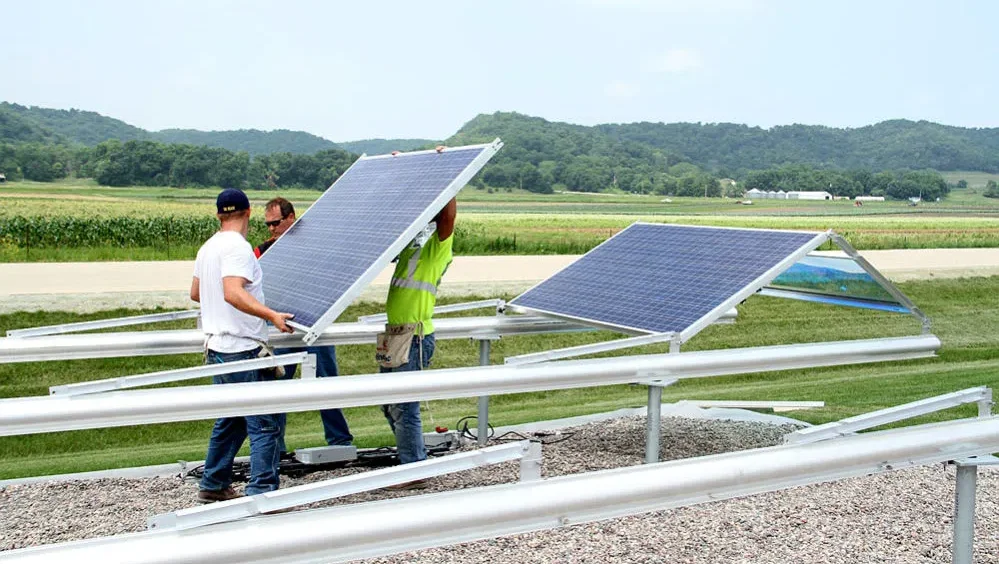
SOLAR: A solar moratorium and fierce opposition by residents lead a Tennessee county board to deny a 150 MW solar farm with plans to send power to a data center and the Tennessee Valley Authority; developers say they may sue to reverse the decision. (Memphis Commercial Appeal)
ALSO:
EMISSIONS: Researchers say Louisiana’s $3 billion coastal restoration project to build 21 square miles of land with mud from the Mississippi River could earn about $530 million through carbon offsets sold to businesses. (NOLA)
OIL & GAS:
STORAGE: Battery company LG Chem secures a $19 billion contract with General Motors as it builds a $3.2 billion factory in Tennessee. (WKRN)
ELECTRIC VEHICLES:
GRID: A municipal Virginia utility completes construction of a new substation to power two industrial parks, with plans for more grid upgrades. (Danville Register & Bee)
POLLUTION: A class action lawsuit alleges Duke Energy used motor and transformer oil laden with PCBs as “mosquito control” at a South Carolina lake. (Chronicle-Independent)
NUCLEAR: Kentucky lawmakers advance a bill to prepare the state for an anticipated surge in nuclear power production. (Associated Press)
CRYPTOCURRENCY: A judge rules in favor of Texas cryptocurrency companies’ challenge to efforts by the U.S. Department of Energy to collect data on the sector’s energy consumption. (International Business Times)
BIOMASS: A wood pellet producer with numerous factories in the Southeast approaches a crucial deadline for a bond payment that could lead to a bankruptcy filing. (Wilmington StarNews)
CLIMATE:
POLITICS: Mississippi Gov. Tate Reeves calls for the state to become “masters of all energy,” from oil and gas development to solar power. (Associated Press)
COMMENTARY: After suffering a significant legislative loss last year, Dominion Energy is scaling up its campaign contributions to Virginia lawmakers and has given more than $11 million so far in the 2023-2024 cycle, writes an energy columnist. (Virginia Mercury)